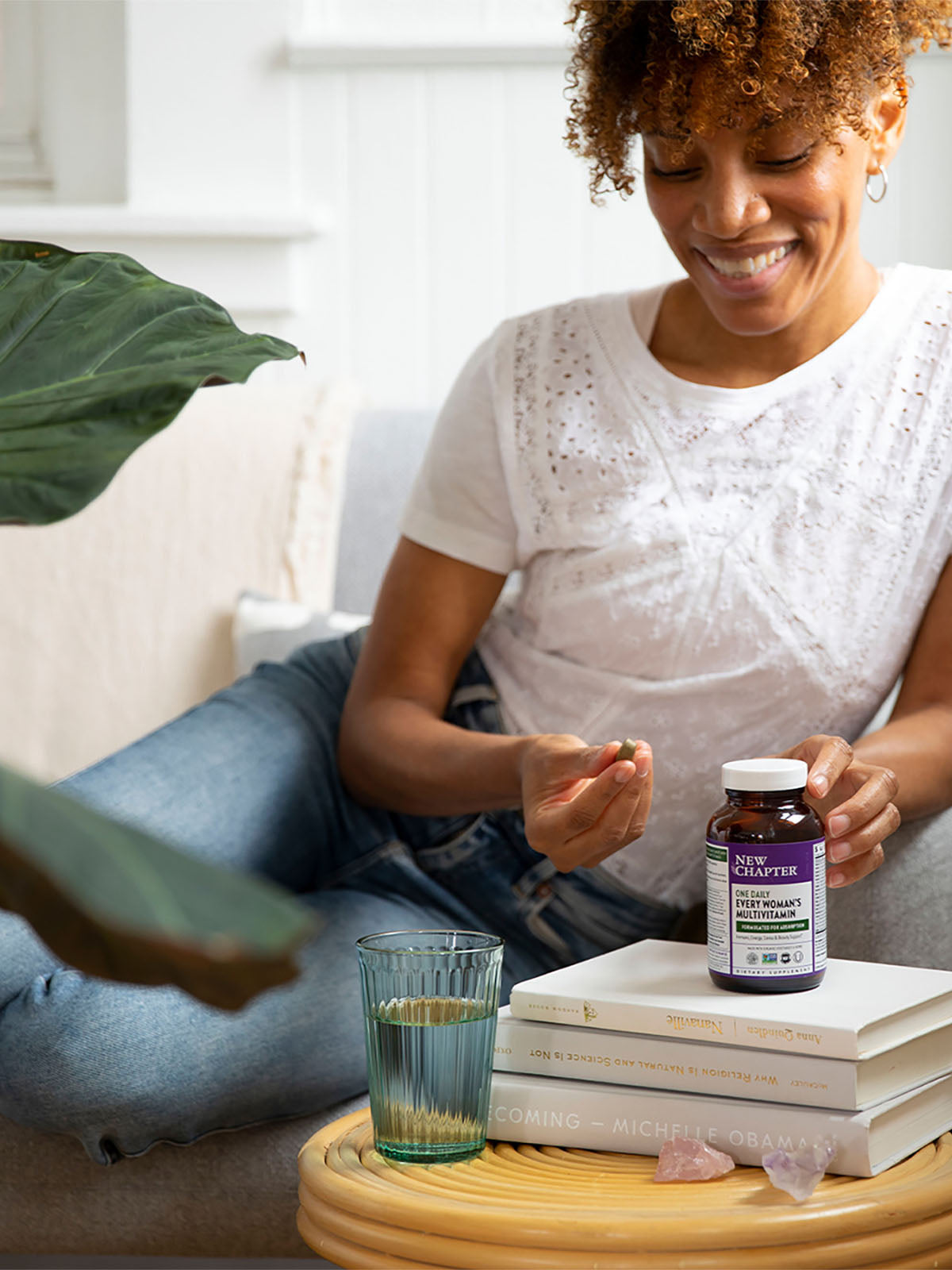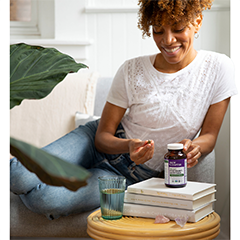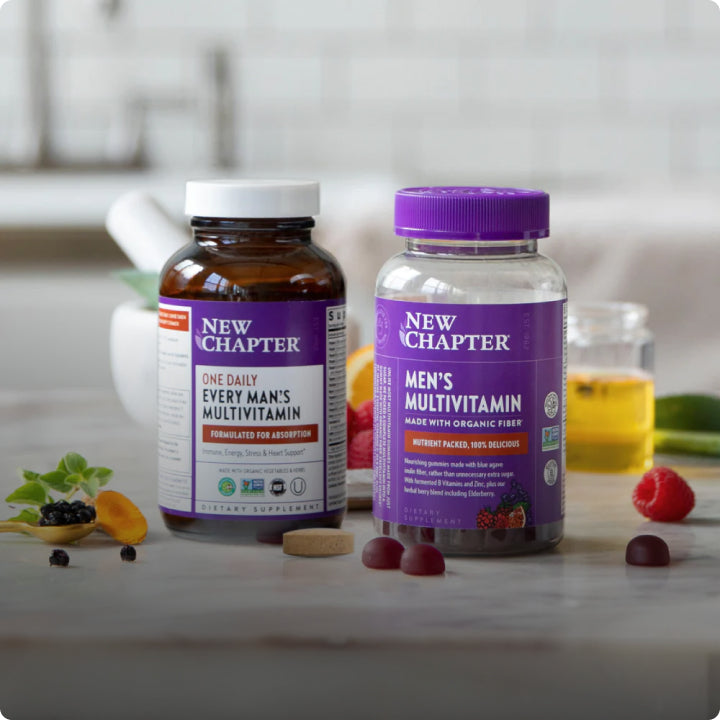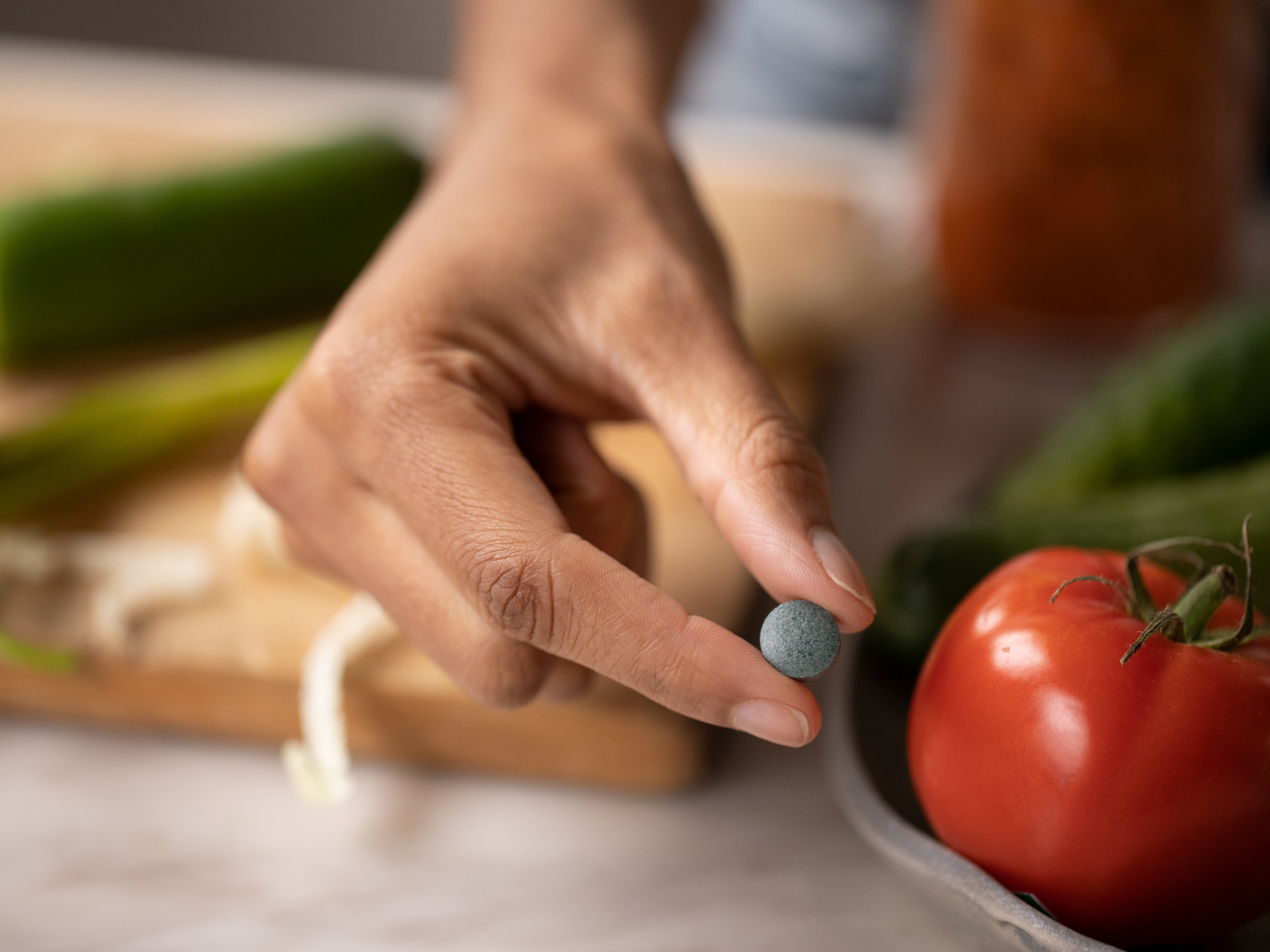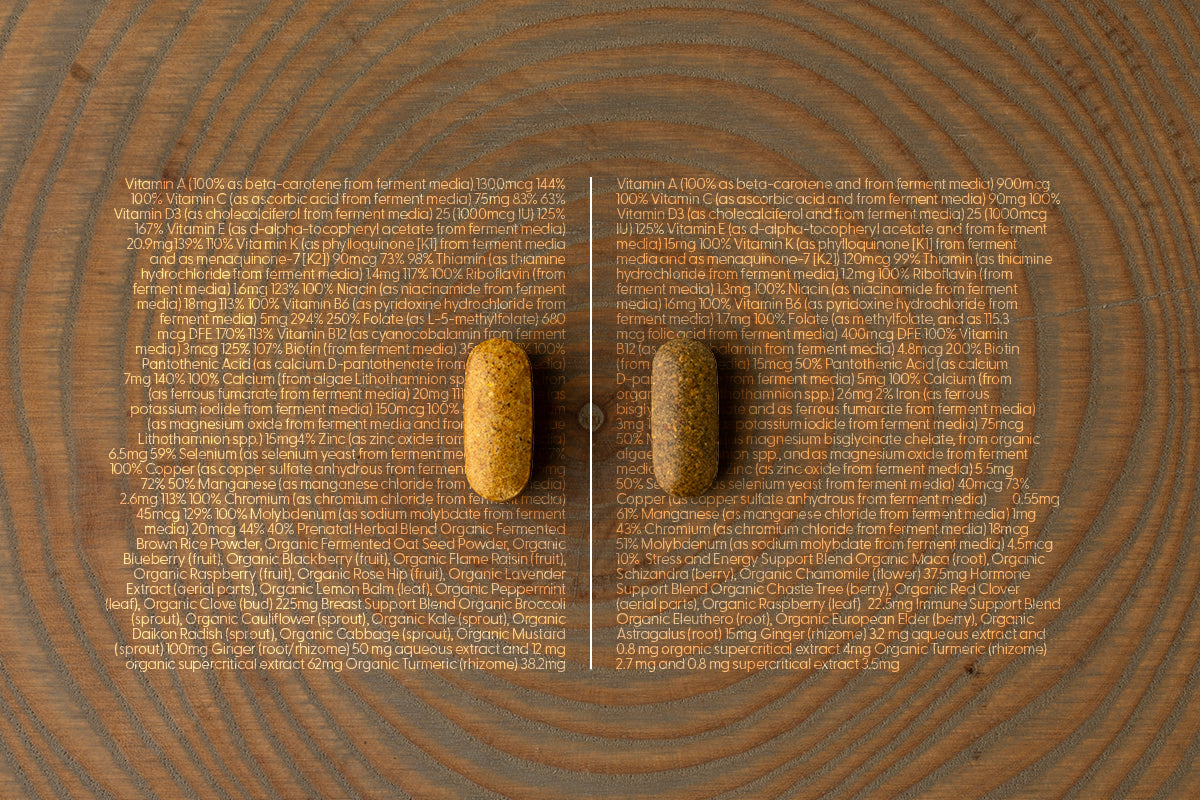Fermented Zinc Supplements: Benefits, Uses & Bioavailability
It may be at the end of the alphabet, but when it comes to immune support and skin health, Zinc is a top supplement to consider for your regimen! Let’s dig into this solid mineral that humans need for life. We’ll look at what Zinc is, where it comes from, how much is recommended, and more.
Zinc’s Role in Your Body
Our understanding of Zinc and its importance continues to evolve. Research shows that the body uses Zinc for a number of functions, including cellular metabolism and division, protein and DNA synthesis, wound healing, and normal growth and development especially during pregnancy and childhood. Zinc is also required for you to be able to taste and smell.
Health Benefits of Zinc Supplements
Despite its importance, your body does not store Zinc for use. You get the Zinc you need from food and from supplements (if you take supplements). Zinc is generally included in multivitamin and multimineral formulas, including prenatal vitamins. Zinc is also available in benefit-specific Zinc supplements.
What is Zinc good for in terms of health benefits? Scientific research shows how Zinc benefits two major areas of health.

Immune Support
Zinc supports healthy immune system function.* It helps the body’s immune cells to do their jobs in defending and protecting your systems. Zinc’s antioxidant action may play a role in its immune-supportive power.
Skin Support
Zinc supports skin resilience and helps maintain the integrity of skin and mucosal membranes.* According to the Linus Pauling Institute at Oregon State University, Zinc is an antioxidant that helps to stabilize cell membranes for overall skin health support.* Interestingly, Zinc oxide is also used in topical sunscreens to help protect skin from UVA and UVB radiation UVB radiation, and in diaper rash creams for babies.
Fermented Zinc vs Traditional Zinc Supplements
Zinc is an element. On the periodic tablet it’s atomic number 30 and chemical symbol “Zn.” Of course, you don’t just consume Zinc as a raw metal. Zinc supplements use forms that include zinc acetate, zinc gluconate, zinc bisglycinate, zinc yeast, and zinc sulfate. Some forms are more easily used (bioavailable) by the body than others, due to factors like molecular weight or the presence of proteins that enhance absorption.
At New Chapter, science guides us in choosing the ingredients that work well with your body. That’s why our Zinc supplement is expertly formulated with Zinc oxide fermented with Saccharomyces cerevisiae beneficial yeast to deliver Zinc in a whole-food fermented, bioavailable form. Researchers have found that fermented Zinc has 1.6x better bioavailability than the non-fermented form (Zinc gluconate). Our gentle, one-daily, fermented Zinc tablets also include complementary superfoods like Elderberry and Turmeric.
Symptoms of Zinc Deficiency
Up to 17% of the global population is at risk for inadequate Zinc intake. Low Zinc levels are seen more frequently in developing countries that experience food insecurity. According to the National Library of Medicine, symptoms of Zinc deficiency may include slow wound healing and hair loss.
Foods that Contain Zinc
Some fortified foods, like breakfast cereals, have Zinc added to help people better meet daily requirements. Read labels to find out if Zinc has been added to your favorite foods! In addition, there are a number of natural foods high in Zinc. Here are some common Zinc-rich foods from the USDA National Nutrient Database.
Shellfish
Topping the list of foods rich in Zinc are oysters. A serving of these bivalve mollusks (3 ounces) delivers up to a whopping 75 mg of Zinc! Crab and lobster also contain some Zinc.
Meat
Meats such as beef, pork, and lamb deliver dietary Zinc. You can also get Zinc from turkey and chicken, particularly the dark meat.
Nuts & Seeds
Cashews, sesame seeds, and pumpkin seeds are examples of nuts and seeds that contain Zinc.
Legumes
Legumes (like beans and peas) contain Zinc, but legumes are also a source of phytates. Phytates are “anti-nutrients” that bind to Zinc (and other essential nutrients) and prevent it from being absorbed properly by the body. That doesn’t mean you have to give up lentils for life—just eat a varied diet so you’re getting usable Zinc from other sources.
Relationship Between Zinc & Copper
Very high levels of zinc in the body can sometimes interfere with absorption of copper, which is another important trace mineral. In general, this is only an issue for those who have too much zinc in their plasma or who have low levels of copper. You’ll find that some Zinc supplements are formulated with copper to help balance your intake of the two elements. New Chapter Fermented Zinc formula contains both zinc and copper.
How Much Zinc Should You Take?
How much Zinc per day do you need? It’s a “trace” mineral, meaning only small amounts are required. Daily recommendations for adults vary slightly. This list of general Zinc recommendations is from the National Institutes of Health.

Got questions about taking Zinc? Check in with your healthcare professional about the best Zinc supplement program for you.
The Bottom Line
Your body needs daily Zinc. Sure, you only need small amounts, but it’s essential! Use of Zinc as part of a supplement regimen can be traced back to the early 16th century, when Paracelsus, a Swiss physician, philosopher, and alchemist, recommended its use. (He’s thought to be the first to use the word “Zinc.”) To this day, we continue to see the importance of Zinc for human health. Fortunately, it’s easy to get your Zinc in a digestible, well-absorbed form—whether you choose our Zinc complex or our fermented multivitamins that are all expertly formulated with Zinc.

